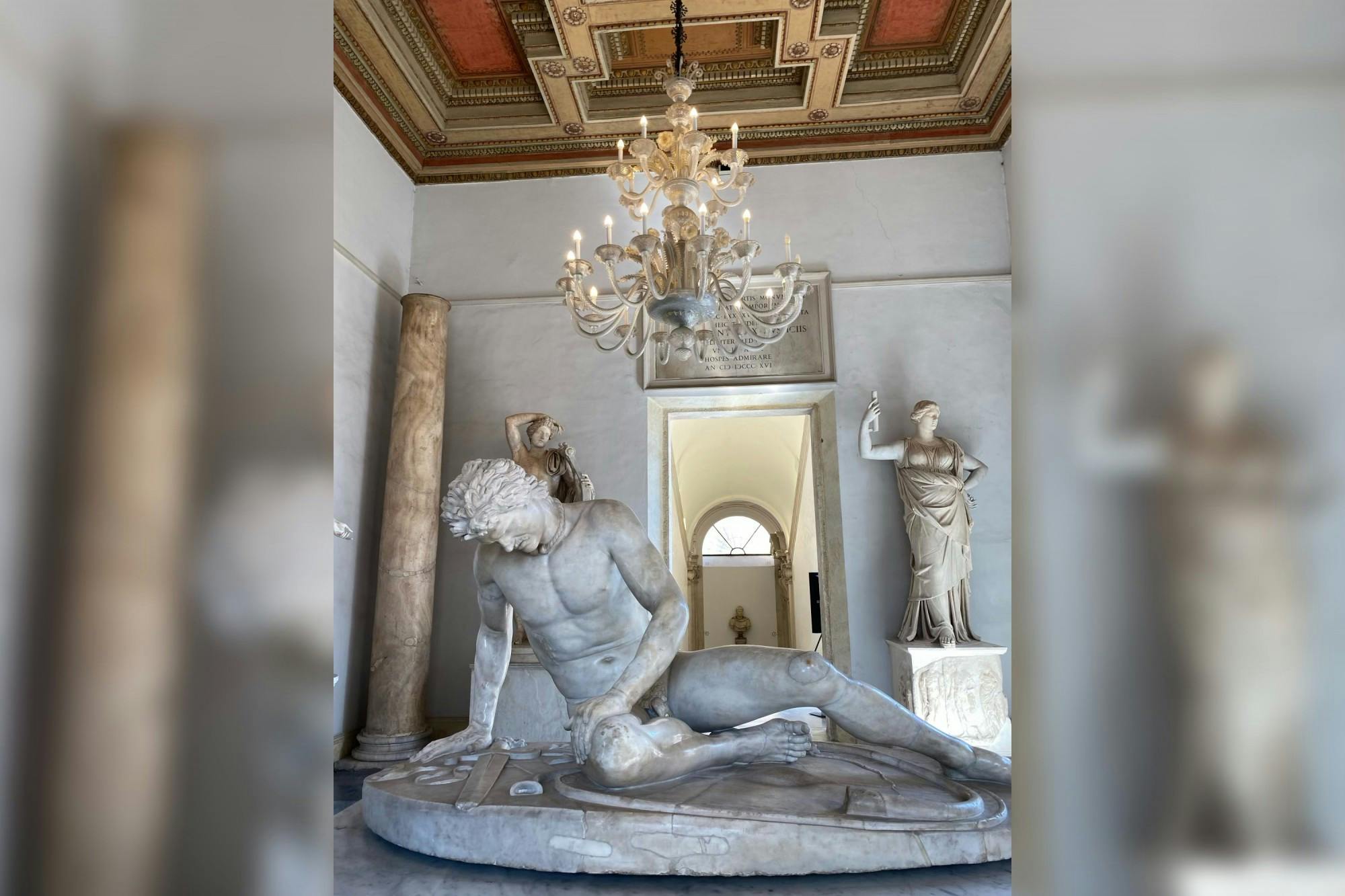While Hanover and the Upper Valley may have vibrant arts scenes in their own regard, each year Dartmouth students who crave more than what Hanover has to offer participate in Foreign Study Program (FSP) experiences tailored specifically to the arts. This spring, 12 students traveled to Rome to study Art History with professor Ada Cohen and professor Steven Kangas from Dartmouth’s art history department. Likewise, 14 students forwent a Hanover spring for the opportunity to study in Vienna with music professor Sally Pinkas. In addition to Dartmouth faculty, both programs were supported by local professors and staff at onsite facilities in each respective city.
These programs offer Dartmouth students the unique encounter with arts abroad, and oftentimes, in their most original contexts. Anne Guidera ’25 shared that their FSP experiences were quite different from those of their time in arts courses at Dartmouth.
“At Dartmouth, it can sometimes be harder to appreciate what you’re learning about in the classroom,” said Guidera. “However, when you’re able to see [these works of art] in their original context … it adds a lot to the experience and understanding.”
The bulk of learning takes place on site visits to the art which that class will be about, and features student presentations, faculty commentary and group discussion in the presence of the works at hand. In addition to the significance of being physically present with the art, Guidera shared that the Art History FSP has made them even more engaged in appreciating art in their new everyday lives in Rome.
“Even when we’re not in the actual class time frame, we are always thinking about the things we have studied in our classes and are engaged in the art history and architecture that surrounds us in Rome,” said Guidera. “For example, today, my friend and I just went to the Pantheon, just for fun, and outside of class time, and while we were there, we found ourselves analyzing the design, materials, and significance of this masterpiece.”
Similar to Art History FSP students in Rome, Music FSP students in Vienna contrasted their experiences on the FSP with those in other Dartmouth courses in the arts. Sasha Usher ’25, a student studying violin and voice on the Music FSP, detailed the immersive element of their experiences thus far.
“Professor Pinkas has worked hard to craft a diverse lineup of concerts which we attend approximately 4-times per week and [we] have had the privilege of attending concerts at most of the major concert venues in Vienna, and some in other parts of Austria, as well,” said Usher.
In addition to the new experiences with the arts, students’ experiences with cultural immersion in their respective cities adds a vital element to the arts education. Sophie Wiener ’25 highlighted the significance of studying art history in Rome.
“Rome is a super special city because you can experience the various palimpsests of art that exist in the city, ranging from ancient art and architecture to art from the early classical period,” Wiener said. “We constantly find ourselves running into important pieces of art in our everyday life in Rome.”
These programs have allowed students to encounter pieces of art in their true context. Furthermore, an emphasis on introducing classical music to young people has been key in sustaining the vibrant classical music scene which they have experienced firsthand. Emma Ratchford ’25 shared the significance of studying music in Vienna, a town which has produced many of the classical music icons.
“There’s a deeper appreciation for classical music [in Vienna], notably the history of this place and the people who have lived and performed here. The added layer makes this experience all the more special,” Ratchford said.
While both groups of students found the educational aspects of their respective FSPs to be engaging and immersive, they also offered insightful commentary on important experiences outside of the classroom.
“In and outside of the classroom, there is a lot of collaboration going on because we are all living together which builds close relationships, and in the classroom, one of our courses is entirely focused on group presentations, so we’re always developing the skills to work collaboratively with other [art history] students,” Guidera said.
The FSP programs have provided opportunities for closer connections to both faculty and students. Collaborative environments have been established by exploring Rome, Vienna and their surrounding cities through field trips with the professors and fellow students, all while engaging in discussions and inquiries with them about the art which they visit.
“We have all gotten super close with each other on the program — many of us meeting one another for the first time in meetings preparing for Vienna,” said Ratchford. “We share meals and experiences outside of the FSP and enjoy collaborating artistically with each other in classes and assignments as well.”
The FSPs in both Vienna and Rome not only created an immersive experience to teach about the vitality of art and music, but imbued its students with a renewed sense of purpose and consideration as their abroad experience nears its end.
“This experience has reminded me of how important music is in my life and has allowed me to pause for a minute and reevaluate how I imagine music existing in my life, at Dartmouth and beyond,” Usher said. “It has inspired me to let music have a larger role in my life, and for that I am really grateful.”
Ramsey Ash ’24 is a quantitative social science and music double major from Huntington, West Virginia. In addition to writing for the Arts section, Ramsey is involved in The Dartmouth College Wind Ensemble, the Dartmouth Clarinet Choir, is co-president of Musical Empowerment at Dartmouth and is a Hopkins Center Fellow.




